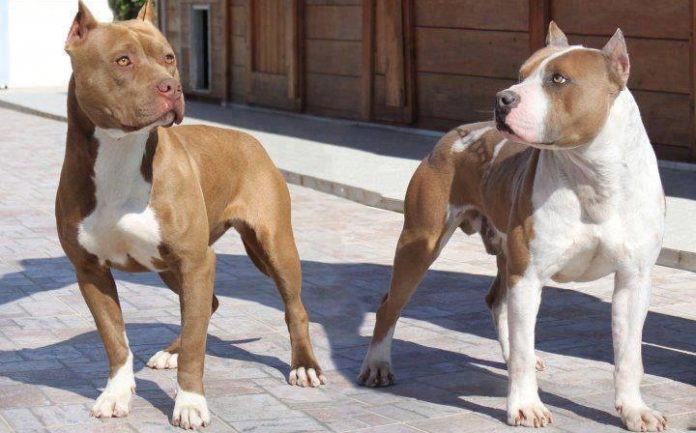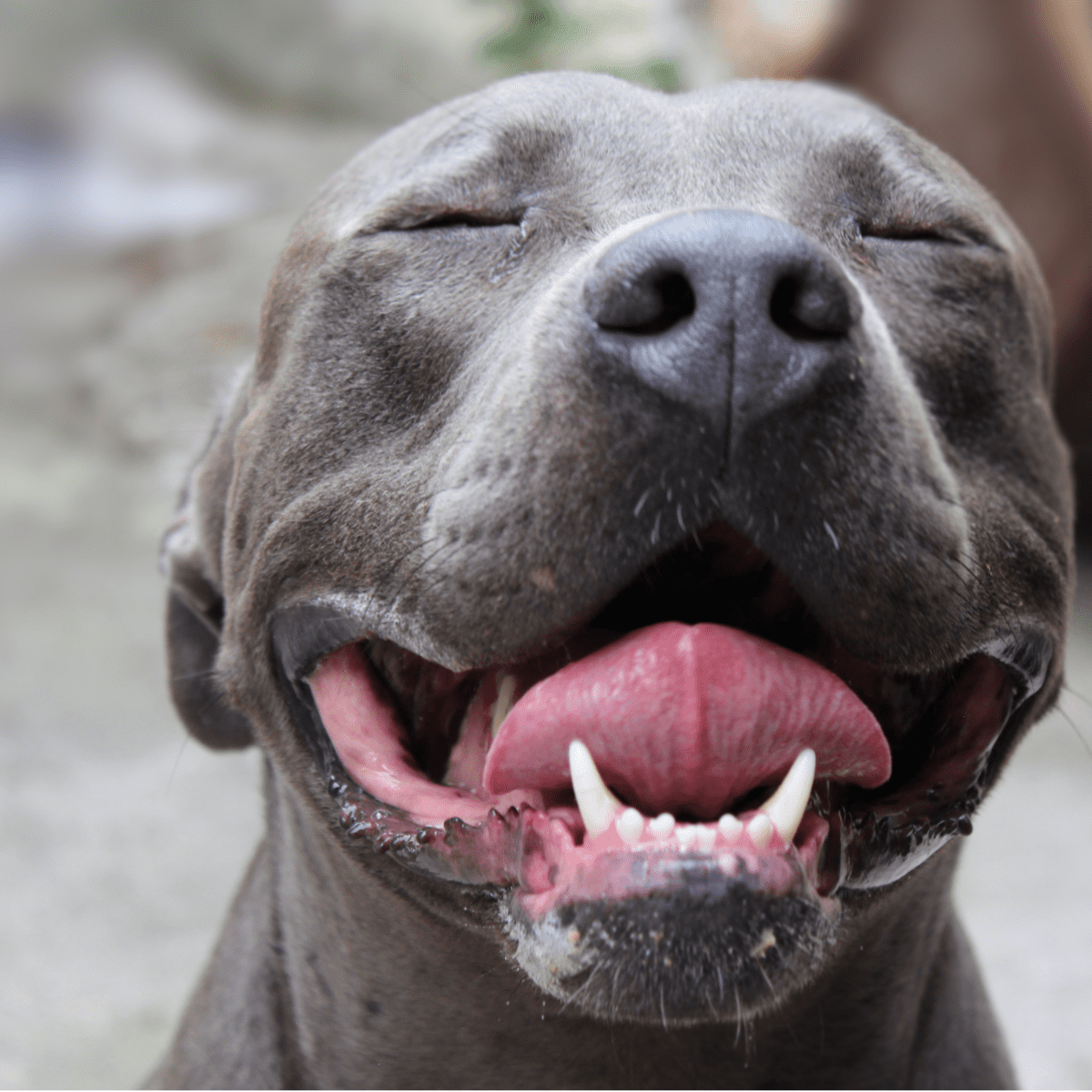Paragraph 1: Despite their reputation, on average, pitbulls are not inherently aggressive. While it is true that pitbulls can be involved in incidents, it is important to remember that aggression is not solely a breed trait but a result of several factors such as improper training, neglect, or irresponsible ownership. It is unfair to stereotype an entire breed based on isolated cases, as many pitbulls are loving and friendly companions.
Paragraph 2: Understanding the context of pitbull aggression is essential in addressing this issue. Throughout history, pitbulls were originally bred for dog fighting, which may have contributed to their inclination towards potential aggression. Nevertheless, proper socialization, consistent training, and responsible ownership play a crucial role in helping pitbulls become well-behaved and friendly pets. Studies have shown that favorable environments and responsible training significantly reduce the likelihood of dog aggression, emphasizing the importance of responsible ownership and education in promoting the positive qualities of pitbulls.

Why are Pitbulls Aggressive? Unraveling the Truth About Pitbull Behavior
1. Understanding Genetics and Breed History
When exploring the question of why some Pitbulls exhibit aggressive behavior, it’s essential to delve into their genetics and breed history. Pitbulls are not inherently aggressive. The aggressive behavior seen in some individuals is often a result of irresponsible breeding practices and a lack of proper training and socialization.
Pitbulls were originally bred in the 19th century for blood sports such as bull-baiting and bear-baiting. Their tenacity, strength, and perseverance were valued characteristics for these brutal activities. As the focus shifted away from fighting and towards companionship, responsible breeders strived to create Pitbulls with a gentle and friendly temperament. However, unscrupulous breeders and owners perpetuated negative traits through unethical practices, leading to the misconception that all Pitbulls are aggressive.
It’s important to remember that genetics play a role in a dog’s behavior, but they do not determine it entirely. Factors like environment, training, and socialization have a significant impact on a Pitbull’s behavior and temperament. Responsible ownership, positive reinforcement training, and early socialization are key to raising a well-behaved and non-aggressive Pitbull.
2. The Influence of Environment and Upbringing
The environment in which a Pitbull is raised significantly influences its behavior. Dogs, including Pitbulls, are highly adaptable and responsive to their surroundings. If a Pitbull is subjected to neglect, abuse, or inadequate socialization, it can develop aggressive tendencies as a survival mechanism or as a result of fear and anxiety.
Additionally, the behavior of a Pitbull’s owner or primary caregiver can shape their temperament. Dogs thrive in consistent, loving, and well-structured environments. If an owner uses harsh disciplinary methods, fails to provide proper training and socialization, or encourages aggressive behavior, the Pitbull may develop aggression issues.
The importance of early socialization cannot be overstated. Exposing a Pitbull puppy to a variety of people, animals, and environments from an early age can help them develop into well-adjusted and non-aggressive adults. Proper socialization teaches a Pitbull to communicate effectively with others, reduces fear and anxiety, and fosters a positive temperament.
3. Misconceptions and Media Influence
The media often portrays Pitbulls in a negative light, perpetuating misconceptions and fueling the belief that they are inherently aggressive. Sensationalized stories of Pitbull attacks make headlines, while the countless well-behaved and loving Pitbulls go unnoticed.
It’s important to remember that any breed of dog, regardless of its size or history, can exhibit aggressive behavior if it is mistreated or not properly trained and socialized. The focus should be on responsible ownership rather than vilifying specific breeds.
Furthermore, breed-specific legislation (BSL) adds to the stigma surrounding Pitbulls. By imposing restrictions or outright bans based on breed, BSL fails to address the root causes of dog aggression and unfairly discriminates against certain breeds and their responsible owners.
4. Training and Socialization for a Well-Behaved Pitbull
Proper training and socialization are crucial for raising a well-behaved and non-aggressive Pitbull. Positive reinforcement training techniques, such as reward-based methods, are highly effective in shaping desirable behaviors and strengthening the bond between owner and dog.
Consistency and patience are key when training a Pitbull. These dogs are intelligent and eager to please, but they can also be stubborn. Establishing clear boundaries, teaching basic obedience commands, and addressing any behavioral issues early on are essential steps in preventing aggression.
Socialization should begin from a young age and continue throughout a Pitbull’s life. Introduce them to different people, animals, and environments in a controlled and positive manner. This exposure will help them build confidence, develop appropriate social skills, and reduce the likelihood of fear-based aggression.
5. Pitbulls Can Be Loving Family Pets
Pitbulls, when responsibly bred, trained, and socialized, can make wonderful family pets. These loyal and affectionate dogs have a strong desire to please their owners and form deep bonds with their families.
- They are highly trainable and excel in activities such as obedience, agility, and therapy work.
- Pitbulls are known for their love of children and can be gentle and patient when properly introduced and supervised.
- They are active and energetic dogs that require mental and physical stimulation, making them great companions for active individuals or families.
By dispelling the myths surrounding Pitbull aggression and promoting responsible ownership, we can help change the narrative and give these incredible dogs the chance they deserve.
The Importance of Responsible Ownership and Education
Responsible ownership and education are crucial in addressing the issue of Pitbull aggression. It is essential for potential owners to research and understand the breed before bringing a Pitbull into their home.
6. Benefits of Responsible Pitbull Ownership
Responsible ownership of a Pitbull comes with numerous benefits:
- Building a strong and loving bond with a loyal companion.
- Providing a safe and nurturing environment for the dog.
- Becoming an advocate for the breed, dispelling myths and promoting responsible ownership within the community.
- Contributing to the positive reputation of Pitbulls by exemplifying their true nature through well-behaved and friendly dogs.
7. Tips for Responsible Pitbull Ownership
To be a responsible Pitbull owner, consider the following tips:
- Research reputable breeders or consider adoption from a reputable shelter or rescue organization.
- Ensure your Pitbull receives proper veterinary care, including vaccinations, regular check-ups, and preventative measures against common health issues.
- Invest time and effort into training and socializing your Pitbull from a young age.
- Provide mental and physical stimulation through regular exercise, interactive toys, and training sessions.
- Follow local laws and regulations regarding Pitbull ownership and advocate for responsible ownership within your community.
Conclusion: Shattering the Myth of Pitbull Aggression
Pitbull aggression is not inherent to the breed. Understanding the role genetics, environment, and responsible ownership play in a Pitbull’s behavior is key to dispelling the myths surrounding their aggression. With proper breeding, training, socialization, and responsible ownership, Pitbulls can be loving, gentle, and well-behaved family pets. By promoting education and responsible ownership, we can work towards changing the narrative and giving Pitbulls the chance to shine.
Key Takeaways: Why Are Pitbulls Aggressive?
- Pitbulls can be aggressive due to a combination of genetics and environmental factors.
- Lack of proper socialization and training can contribute to aggression in pitbulls.
- Pain or health issues can make pitbulls display aggressive behavior.
- Pitbulls may become aggressive if they feel threatened or protective of their territory.
- Early intervention and responsible ownership can help prevent or manage aggression in pitbulls.
Frequently Asked Questions
Welcome to our FAQ section where we address common questions about pitbull aggression. If you’re curious about the factors that contribute to pitbull aggression, you’ve come to the right place!
Are pitbulls naturally aggressive?
While it is a common misconception, pitbulls are not naturally aggressive. Like any other breed, a dog’s behavior is influenced by several factors including genetics, environment, and training. Pitbulls are known for their loyalty and affection towards their owners when raised in a loving and caring environment.
However, it’s important to remember that individual temperament can vary among pitbulls just as it does with any other breed. Early socialization, proper training, and responsible ownership play a crucial role in shaping a pitbull’s behavior and reducing the likelihood of aggression.
What factors can contribute to pitbull aggression?
There are several factors that can contribute to pitbull aggression. While not exclusive to this breed, these factors may increase the likelihood of aggression in pitbulls:
1. Lack of socialization: Insufficient exposure to different environments, people, and animals during the critical stages of a pitbull’s development can result in fear-based aggression.
2. Poor training and handling: Inconsistent or harsh training methods, lack of discipline, and inadequate socialization can lead to behavioral issues such as aggression.
3. Neglect and abuse: Pitbulls that have experienced neglect or abuse may develop aggressive tendencies as a result of fear or the need to protect themselves from harm.
4. Irresponsible breeding: Unethical breeding practices can contribute to genetic predisposition towards aggression. Responsible breeders prioritize temperament, health, and socialization.
Can proper training help prevent pitbull aggression?
Yes, proper training can greatly help in preventing pitbull aggression. Early socialization and obedience training are crucial in shaping a pitbull’s behavior and reducing the likelihood of aggression. By exposing a pitbull to various environments, people, and animals at a young age, they become well-adjusted and less prone to developing fear-based aggression.
Positive reinforcement training techniques, using rewards and praise to encourage desired behavior, are highly effective with pitbulls. This builds trust, strengthens the bond between owner and dog, and promotes a positive association with training. Consistency and patience are key in training a pitbull to be well-mannered and non-aggressive.
Are there any breed-specific laws or regulations regarding pitbull aggression?
Yes, some areas have breed-specific legislation (BSL) or regulations that target pitbulls due to perceived aggression. However, it is important to note that BSL has been widely criticized for its ineffectiveness in reducing dog bites or improving public safety. Organizations such as the American Veterinary Society of Animal Behavior have opposed BSL, advocating for responsible pet ownership and education instead.
Owners of pitbulls or any other breed should prioritize socialization, training, and responsible ownership practices, regardless of any breed-specific laws in their area. Consulting local regulations and taking necessary precautions, such as obeying leash laws and properly securing your pet, is essential to ensure the safety and well-being of your dog and the community.
Can pitbull aggression be managed or treated?
Yes, pitbull aggression can be managed and treated with the right approach. Seeking professional help from a certified dog trainer or animal behaviorist who specializes in working with aggression cases is recommended. They can assess the root causes of aggression, develop behavior modification plans, and provide guidance on training techniques to address the issue.
It’s important to remember that managing or treating aggression requires patience, consistency, and a commitment to providing a safe and supportive environment for the pitbull. It’s an ongoing process that involves understanding the triggers, using positive reinforcement techniques, and implementing strategies to redirect the dog’s behavior. With proper guidance and care, many pitbulls with aggression issues can improve and lead happy, balanced lives.

Summary
Pitbulls are often seen as aggressive, but it’s important to understand that aggression is not inherent to the breed. Lack of socialization, mistreatment, and irresponsible ownership can contribute to aggression in any dog. It’s crucial to provide proper training, socialization, and love to ensure a well-behaved and friendly pitbull.
Education is key in dispelling misconceptions about pitbulls and understanding their behavior. Recognizing the importance of responsible ownership and addressing the root causes of aggression can help promote a positive image of pitbulls and ensure a safe and harmonious relationship between dogs and humans. Remember, every dog is unique, and with the right care, any breed, including pitbulls, can be loving and gentle companions.
